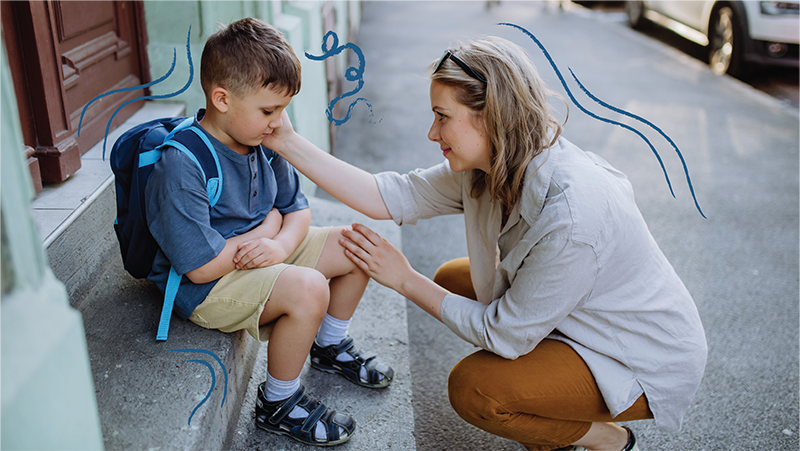
Findings from Mightier’s Caregiver Stress, Wellbeing and Work Impact Study show that parents are trading their mental health and careers to support their children. Findings also show that Mightier changes that.
Where’s the line between your child’s mental health and your own? When your child struggles, your world shakes, regardless of what you say in a Monday morning meeting or if you show up on time.
There’s no emotional boundary between home life and work life. You don’t stop caring about your child, worrying about your child, and advocating for your child when the workday starts. You don’t stop caring about your profession, career growth and accomplishments when the workday ends.
But how exactly does a child’s emotional and behavioral wellbeing impact their caregiver? What career choices are parents making, how do they rate their work performance and engagement in relationships, and what does their life satisfaction look like when their child is struggling?

The pediatric mental health crisis is not just about kids
The pediatric mental health access crisis is not just about lack of providers, and it’s not just about kids. It’s about navigating a complicated system, the stress that comes with missing work or school for appointments, treatment options that aren’t truly effective, and therapeutic models that are not engaging, enjoyable, or built for families. It’s also about the reality that when your child’s mental health is your priority, your own wellbeing is not.
Findings from Mightier’s Caregiver Stress, Wellbeing, and Work Impact Study outline the significant trade-offs and choices that caregivers make to support their children’s mental and behavioral health. Additionally, these findings highlight the substantial career and mental health benefits parents experience after just 12 weeks of their children playing Mightier.
Findings from this study demonstrate that when children use Mightier, an at-home, play-based digital therapeutic program, their caregiver’s mental health and ability to engage meaningfully at work improves, too.
Check out the findings from our Caregiver study:
















